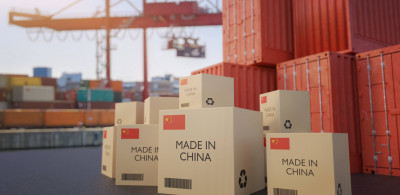The Canada Border Services Agency (CBSA) announced on December 21, 2020 that it is launching investigations to determine whether certain Upholstered Domestic Seating from China and Vietnam is being sold at unfair prices in Canada.
Further details on this anti-dumping investigation are given below. Let's begin by providing some basics on how anti-dumping cases work, their implications and why this case is of particular concern to Canadian importers, wholesalers and retailers of imported furniture.
What are anti-dumping measures and how do they work?
Generally, goods imported into Canada are only subject to regular customs duties and/or the Goods and Services Tax (GST). However, during any given year, certain imported goods may face additional assessments of anti-dumping and/or countervailing duties because the goods have been found to have caused injury to a Canadian domestic industry or because they threaten to cause injury by virtue of being dumped or subsidized.
Canada's anti-dumping laws are contained in a statute called the Special Import Measures Act (SIMA).
Dumping is the sale of goods (in this case to Canada) by foreign producers or exporters at prices that are lower than the prices received by the producer or exporter for sales of the same or similar products in their home market or in a third market, or at prices that are below the cost of producing the products.
Under the World Trade Organization’s Anti-Dumping Agreement and Canada’s SIMA, anti-dumping duties may be applied if two conditions are met:
- “less than fair value” or “dumped” sales must be found to exist; and
- the “less than fair value” sales must be causing or threatening to cause material injury to a Canadian industry producing like products.
Anti-Dumping Duty (ADD): As mentioned above, ADD is assessed when it is found that the product is being sold to Canadian importers at prices that are lower than comparable products in the country of export, or when goods are sold into Canada at unprofitable prices.
Countervailing Duty (CVD): CVD is assessed when the exporter or producer in the foreign country is determined to be financially subsidized by their government in order to sell their products at a cost that is lower than Canadian market values. Subsidizing refers to the provision of financial or other support by foreign governments to their producers to reduce their costs of production.
Complaints about dumping and subsidizing are filed by the Canadian industry with the Canada Border Services Agency (CBSA). If the CBSA finds that imports are being dumped or subsidized, the Canadian International Trade Tribunal (CITT) then inquires to determine whether they are injurious to a domestic industry. If the CITT establishes harmful dumping or subsidizing, the CBSA has the authority to impose ADD and/or CVD on dumped or subsidized imports.
Moreover, provisional duties may be applied following a preliminary decision by the CBSA that injury to the Canadian industry has occurred. The decision to apply a provisional duty is normally made within three months of the start of the investigation. These temporary duties are intended to protect Canadian producers until the CITT renders its final injury decision. Typically, ADD or CVD will apply to imports of the subject goods from the targeted countries for an initial period of five years. The period of assessment of duties may be extended beyond the five years through a process known as an expiry review.
When injury is found, combined ADD and CVD assessments can range from 25% to 350% of the value of the imported goods, depending on various factors such as the type of product, the country of origin and whether or not the foreign exporter has been afforded exporter-specific normal values (see further below).
Click here to see Canada’s anti-dumping measures currently in effect.
The general rule is that the importer in Canada of dumped or subsidized goods is solely liable for applicable duty. The importer is defined by SIMA as being the person who “is in reality the importer of the goods.” Although goods targeted by an ADD or CVD order may be imported by a foreign seller acting as a non-resident importer into Canada, for SIMA purposes the importer in Canada is the Canadian-resident purchaser (who carries on business in Canada). The Canadian party who purchased the imported goods is deemed to be the “real” importer for purposes of ADD or CVD measures and, as such, is liable for the payment of any anti-dumping or countervailing duties. The objective is to ensure that the person in Canada who benefits most from the dumping is not insulated from any duty liability by dealing through an intermediary who clears the goods through Customs. In circumstances where the importer on the customs entry defaults on the payment of any applicable duties or where the designation of the importer for SIMA purposes is not evident, the CBSA will usually find that the “real” importer is the purchaser in Canada to whom the dumped goods were ultimately destined.
Useful links on Canada’s anti-dumping and countervailing duty programs:
SIMA investigative process and timeframes
CITT Anti-Dumping Injury Inquiries - Guide
Canadian importers or purchasers of imported Upholstered Domestic Seating originating in or exported from China and Vietnam need to be aware of this NEW anti-dumping investigation.
The goal of this article is not to explore the merits of the anti-dumping case being brought forward by the complainants, but rather to inform Canadian importers of additional duties that may soon become applicable on the subject goods. Provisional anti-dumping duties could apply on importations of the subject goods as early as April 2021.
This investigation has been initiated by the CBSA. Written notice has been sent to the CITT, the complainant(s), all known importers and foreign exporters of the goods concerned, and to the governments of the foreign countries concerned (in this case China and Vietnam). The purpose of the anti-dumping investigation is to obtain detailed information from concerned parties and determine if the goods are indeed being sold to importers in Canada at dumped or subsidized prices.
The first phase in all investigations by the CBSA follows the same general path:
- at the time of initiation, all known importers, exporters and, in a subsidy investigation, the foreign government(s), are requested to respond to requests for information;
- other interested parties are invited, by way of the CBSA's public notices, to file written submissions containing any information believed to be relevant to the investigation;
- response submissions are received and analyzed by CBSA officers;
- all information is analyzed in detail and normal values and export prices, margins of dumping, or amounts of subsidy are estimated; and
- based on the results, a decision is made to terminate the investigation or to issue a preliminary determination of dumping or subsidizing and proceed with the investigation.
In some situations, exporter-specific normal values or amounts of subsidy are estimated for those exporters who cooperated with the investigation and provided complete information to the CBSA in the preliminary investigation. The exporter-specific ADD or CVD rates are often lower than the general rates of ADD and CVD rates applicable to all other exporters of the subject goods from the concerned countries who did not participate in the investigation.
In the present investigation, Chinese and Vietnamese exporters must file their responses with the CBSA by January 27, 2021.
Product definition
The subject goods are defined as:
Upholstered seating for domestic purposes originating in or exported from China and Vietnam, whether motion (including reclining, swivel and other motion features) or stationary, whether upholstered with a covering of leather (either full or partial), fabric (including leather-substitutes) or both, including, but not limited to seating such as sofas, chairs, loveseats, sofa‑beds, day‑beds, futons, ottomans, stools and home‑theatre seating (“HTS”).
Excluding:
- Stationary (i.e. non‑motion) seating upholstered only with fabric (rather than leather), even if the fabric is a leather substitute (such as leather‑like or leather‑look polyurethane or vinyl)
- dining table chairs or benches (with or without arms) that are manufactured for dining room end-use, which are commonly paired with dining table sets
- upholstered stools with a seating height greater than 24 inches (commonly referred to as “bar stools” or “counter stools”), with or without backs, and/or foldable
- seating manufactured for outdoor use (e.g. patio or swing chairs)
- bean bag seating and
- foldable or stackable seating
- Upholstered motion seating with reclining, swivel, rocking, zero‑gravity, gliding, adjustable headrest, massage functions or similar functions
- seating with frames constructed from metal, wood or both
- seating produced as sectional items or parts of sectional items
- seating with or without arms, whether part of sectional items or not and
- foot rests and foot stools (with or without storage)
- 9401.40.00.00
- 9401.61.10.10
- 9401.61.10.90
- 9401.71.10.10
- 9401.71.10.90
Notice of initiation of investigations
Statement of Reasons – Initiation of investigations
ADD or CVD would be assessed in addition to regular customs duties
Depending on the applicable tariff classification, the regular rates of customs duties are either 8% or 9.5%, and goods from Vietnam that qualify for the CPTPP preferential treatment are duty-free or 3%. Any anti-dumping or countervailing duties that stem from this investigation would be assessed in addition to the regular or CPTPP duty rates applicable.
Canadian businesses that import Upholstered Domestic Seating should monitor this case closely and prepare for the eventuality of additional anti-dumping and countervailing duties, which may become owing on importations arriving in Canada from China or Vietnam as early as April 2021.
Before placing your next order to import these products into Canada, you may want to investigate with your Chinese and Vietnamese suppliers if they are responding to the CBSA’s request for information. In the event that ADD and CVD duties become applicable (if and when CBSA issues its preliminary determination), you should also inquire whether or not the supplier has been afforded lower ADD/CVD rates.
Do not hesitate to contact W2C’s consulting department or your W2C representative if you have any concerns or questions on this topic.

